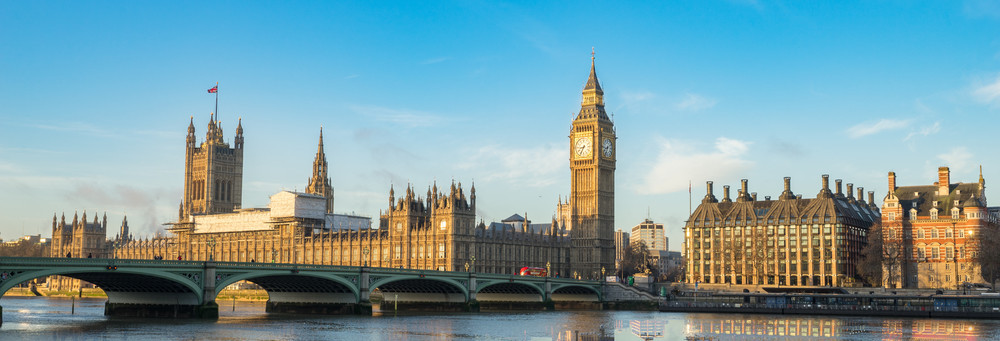Liz Truss and levelling up: what can the PM learn from a PM?

Any new Prime Minister, from any political party, can always expect a full in-tray waiting for them when they arrive at 10 Downing Street. For the UK’s new Prime Minister, Liz Truss, there is the added factor that she is working within a compressed timeframe, facing a general election in just over two years, rather than the usual five years that most new Prime Ministers have.
Liz Truss’s ‘getting things done/delivery, delivery, delivery’ philosophy – while admirable – creates expectation. Those expectations now need to be met if she is to successfully win the hearts and minds of voters when election time comes. This will be where the project manager’s skillset comes into play.
The levelling up programme is one of the things that will surely define Liz Truss’s premiership. This has been long in the planning and, in some cases, levelling up projects are already under way. However, others may yet be scaled back. There are also issues of clarity and direction that need to be addressed. If the new Prime Minister is to deliver, she must not only ensure her advisors and senior civil servants have a project management mentality, but also learn from them in order to incorporate project-based approaches into her own delivery strategies.
Deciding what’s achievable
Politics is the art of making choices. Government departments have finite amounts of money and time. The Prime Minister must ask ‘how do we do what’s best for the nation when it comes to delivering for people?’
Levelling up is a really good example of that, because it keeps coming up and disappearing again.
Before getting on to deciding what’s achievable, it must be determined who makes those decisions. Levelling up now seems to have been shored up with the appointment of a new Secretary of State, the Rt Hon Simon Clarke. But Liz Truss still needs to determine the shape of the portfolio and what its direction is. She must ask herself – and her Secretary of State – what can be done before the next election. The hardest thing for the new Prime Minister will be ‘landing’ enough stuff now to be able to show voters what she has done in time to win the next election.
Prioritising
There’s so much to tackle within levelling up that it’s going to important to prioritise. The temptation to go too wide, too early, will be incredibly hard to resist. But the Prime Minister must remain focused to ensure she can deliver some things right now, then build out from there. Caution is needed. It’s great to have enthusiasm, but there will be an obvious political advantage to getting some results on the table early. This is where the political skill of the Prime Minister and her cabinet will be essential to combine with advice on deliverability. Speed of delivery is one thing, but the projects that are delivered have to benefit the communities they serve if they’re to be deemed truly successful. This means the choice of which projects are right for particular local needs requires central government to work with those local communities, collectively determining a delivery plan that serves all needs.
Setting risk appetite
Liz Truss needs to determine her government’s risk appetite and agree this with her cabinet. This is important because it’s key to enabling civil servants who are accountable for delivery of policies. Will they be watching their backs in case any mistakes are pinned on them? Or will they have the leeway that will enable them to get out there and give it their best shot? Will this government be one that is happy to aim for the stars and land on the moon? Early discussions around risk and risk management with the people delivering projects will be crucial to deciding this.
Legacy planning
Projects, programmes and portfolios have to be resourced properly. That means using projects not only as a means for immediate delivery, but also for leaving a lasting legacy. With the London Olympics for example, it was a great event but it also left a great legacy, not just in Elizabeth Park and regenerating east London but also through the people in the project profession who earned their stripes. My call to Liz Truss is twofold: firstly, inspire the new generation of project managers by committing to delivering the projects that achieve social and economic benefits across the UK; secondly, create a positive environment that enables them, by valuing team ethos, diversity, and the sharing and management of knowledge. All of these have been identified by the project profession as conditions for project success.
Setting clear (and understandable) goals
It will be important for Liz Truss and the teams she leads to have clear direction on what they’re doing. Levelling up sometimes means different things to different people. A lot of people think of it as being something that’s only happening in the North. Other people are entirely unsure what it is or what it’s aims are. One of the first things the Prime Minister must do is establish clarity of message to the people who are tasked with delivering levelling up (and other key programmes and portfolios) so that they know what they have to deliver and – crucially – when they’ve done it.
Two things no politician wants to hear are ‘you lack clarity’ and ‘I don’t know if we’re there yet.’ She must appoint project practitioners who can advise on setting clear goals and measurable benchmarks for success, learn from them, then apply this technique to her own goal-setting.
You may also be interested in:


0 comments
Log in to post a comment, or create an account if you don't have one already.